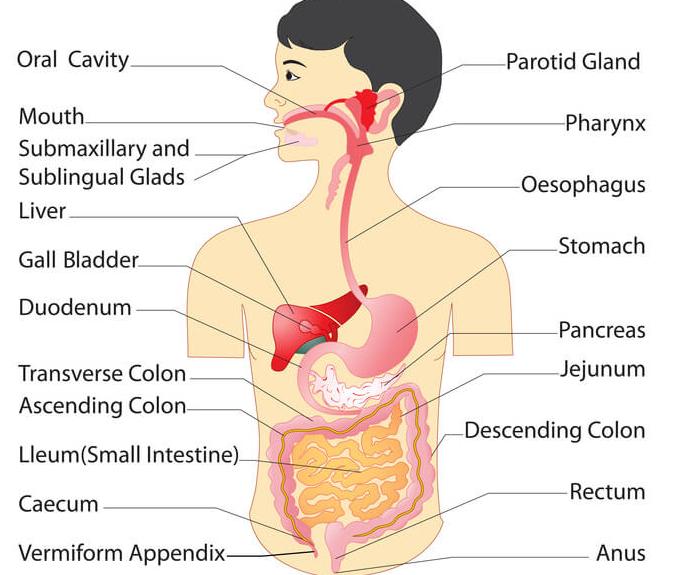Updated By: LatestGKGS Desk
Human Digestive System: definition, mechanism, parts, and Importance of digestion

Definition of Human digestive system and mechanism of digestion
A human digestive system is a group of organs working together in converting food into energy and basic nutrients required for the body.
It is made up of the gastrointestinal tract, also called as digestive tract along with liver, pancreas, and gallbladder which constitute the parts of the digestive system.
The hollow organs that make up the gastrointestinal tract – GI tract include the mouth, stomach, esophagus, small intestine, large intestine that contains rectum and anus.
Some parts of the nervous and circulatory systems also play a major role in the digestive process. A combination of nerves, bacteria, hormones, blood, and organs of the digestive system complete the task of digestion that a person consumes in a day.
Importance of digestion
Digestion is important because without it we cannot receive our nourishment for overall well-being.
Digestion is necessary for breaking down food particles into nutrients that are used by the body as a source of energy, cell repair, and growth.
Food and drink need to be converted into smaller molecules of nutrients before absorbed by the blood and carried to the cells throughout the body.
The body breaks the nutrients from the drink and food into carbohydrates, vitamins, fats, and proteins.


